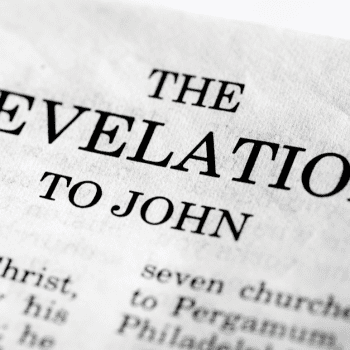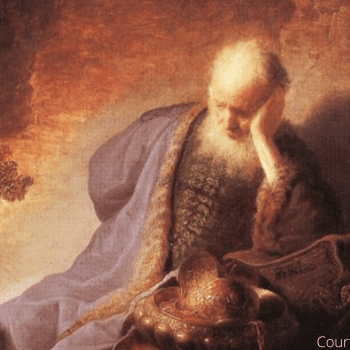
Week #5 Luke 13:1-17:10
Monday: Read Luke 13:1-35
We have reached the heart of the Gospel of Luke. At the end of this section, the disciples cry out, “Lord, ‘increase our faith’” (17:5).
Luke continues to center his focus on the disciples. The issue remains what is required for entrance into the kingdom. He continues to call the nation to repent (5).
Jesus’ healing of a woman on the Sabbath (10-17) highlights the contrast between Jesus and the religious leaders. They are angered because there are “six days in which work should be done” (14). For Jesus, the Sabbath was intended to be a day for justice (it gives the laborer a day off: 15-17). For Jesus, the healing of the woman on the Sabbath exemplifies what the Sabbath is for: a day for release from work, captivity, and bondage. Thus, the new Sabbath was already breaking in!
This raises the question as to how many will be saved? (23). Jesus explains that many “will come” from all directions (29-30) and will recline at the table (29) and enjoy the great reversal.
Some Pharisees warn Jesus of Herod’s desire to kill Jesus (31).[1] Jesus, however, must suffer and He must do so in Jerusalem (33).
The chapter ends with Jesus’ lament over the fate of Jerusalem (34).
Questions to ponder/discuss:
- What is your practice of the Sabbath like? How does it line up with Jesus’ affirmation that it is a day for justice? What can you do differently so that you are living intentionally on the Sabbath?
Note: the Sabbath is not a day for rules delineating what we can and cannot do. It is a day of rest from labor (so that the workers may not be oppressed) and to do justice.
If you are a laborer, enjoy the day! Sure, going to church and worship is important. But rest and enjoy the day.
If you are an owner, give your people rest and take a day off also. The thought that you must work to keep the business going fails to recognize that God is sovereign over your business, and He wants you to rest and worship.
Tuesday: Read Luke 14:1-35
Luke 14:1-24 takes place at a meal at the house of a Pharisee (1). There are two important social considerations to recall in order to understand this passage well.
First, one’s social status, which was based on how a person was perceived by others, was a vital concern. Thus, where a person sat during a meal advertised to everyone where they were on the social ladder. The host would be sure that invitations to such meals were only issued to those who would preserve their social status. Thus, invitations to the poor were a waste. After all, they could not reciprocate and therefore had to decline the invitation. And, if they attended, they would bring the host shame and not honor.
Secondly, the practice of reciprocity was assumed. In this system, gifts were never free.
Jesus uses this occasion to speak against both these practices—because they exclude the poor. He says to the guests, “recline at the last place” (10). We tend to think of this as an act of humility. Doing so, of course, means that the focus of our actions is still on ourselves. I suspect that Jesus meant it as a means of honoring others. If we take the lowest seat, then someone else gains in honor. I suggest the fact that we will be rewarded by “moving up” occurs in God’s eternal banquet. Thus, it is not about moving down now so I can gain honor now, but moving down now, so someone else can gain honor now. For this, we will be honored in eternity.
Then, He says to the host: invite the “poor, the crippled, the lame, the blind” (13). And even though they can’t repay you (12, 14), you will be repaid at “the resurrection of the righteous” (14). This supports that the previous honor occurs in the eschaton too!
The parable that follows illustrates Jesus’ teaching. God too is hosting a banquet. Many, however, will make excuses as to why they cannot come. Their excuses all place possessions and family before the kingdom of God.
This leads to Jesus’ affirmation that we must “hate” our father and mother or we cannot be His disciple (26). It is critical to note that “hate” was a figure of speech so that what Jesus was saying is that one must love Him so much it is as though one hated their father and mother.
In addition, one must “give up all their own possessions” (33) or they cannot be His disciple.
Questions to ponder/discuss:
- Well, this is the heart of Luke. If we thought it was easy, we haven’t been fed the fulness of Jesus’ teaching. Again, we are reminded that as the disciples begin to grasp Jesus’ message, then reply with “Lord, ‘increase our faith’” (17:5). I wonder if we have too often “softened” Jesus’ words so that we can remain comfortable: “well, we don’t actually have to hate our parents”; and, “He is not telling us that we have to sell our possessions, but only that we should be willing to.” I don’t know the answer as to what this passage means for you. I only wish to remind you that “carrying a cross” (27) isn’t supposed to be easy. If you are in a group study, discuss! If you are studying privately, begin journaling before the Lord and discuss what this might mean for you.
Wednesday: Read Luke 15:1-32
This chapter contains three of Jesus’ most famous parables. The chapter begins with Jesus modeling the love and counter-cultural ethic that He has been commanding all along. He is eating with the poor and the marginalized—which Luke titles, “tax-gatherers[2] and the sinners” (1).
The Pharisees and Scribes begin to “grumble” (2). The word “grumble” is the same word used in Num 14:36 to depict the ungrateful Israelites who proved unworthy of inheriting the land of promise. Thus, the key to the parables is that they serve as Jesus’ response to the Pharisees and Scribes’ complaint: “This man receives sinners and eats with them” (2).
All 3 parables have in common a main character that loses something (3, 8, 24), which is then restored, and they celebrate (6, 9, 24). The parables build on each other in that 1 out of 100 sheep is lost; then 1 out of 10 coins is lost; and finally, 1 out of 2 sons is lost.
Contrary to many popular perceptions, the parables are fundamentally about God. They explain why He is eating with the wrong sorts of people. The answer is “we had to be merry and rejoice, for this brother of yours was dead and has begun to live, and was lost and has been found” (32).
Note: the parables do not suggest that the Pharisees have to remain on the outside. The Parable of the Lost Son, in fact, ends without an answer as to whether the older brother decides to join the banquet.
Questions to ponder/discuss:
- I would like to suggest that we should begin to read these parables from the perspective of ourselves as the Pharisees. Jesus enters our churches and explains to us that the kingdom we desire is not in line with His kingdom. He then challenges us to repent and enter His banquet. What will we do?
- Shall we deny the call because surely, we are not wrong?
- Shall we deny the call because we aren’t Pharisees: we go to church faithfully (so did they)?
- Shall we deny the call because the type of people Jesus is talking about eating with clearly are not worthy?
- Or will we enter in and join them. Considering ourselves no better than anyone else?
- There’s an old joke: “how many _[enter your church or denomination here]_ does it take to change a lightbulb?” Answer: “change? What do you mean change?”
Thursday: Read Luke 16:1-18
Note that 16:1 continues the speech of 15:1-32. The only difference is that Jesus now turns to address His disciples. He continues, however, to speak in parables.
The Parable of the Corrupt Manager is perhaps one of the most difficult parables in the Bible. The difficulty derives from the fact that we consider Jesus/God to be the Master. But then the master “praised the unrighteous manager” (16:8). How could this be? The parable makes sense only when we recognize the Greco-Roman system of patronage resides front and center in the parable.
In the parable, the manager realizes that he has been caught and that he will be relieved of his duties. This leaves him 2 options: he can beg—which he is too proud to do; or he can become a day laborer—which is work he is not cut out for and likely does not want to try. So, he comes up with a 3rd option.
While still employed, he forgives the debts of two of his master’s debtors—which he was authorized to do. The result is that the two debtors are now indebted to him. Thus, the moment he is fired is the moment when he will go to them for repayment: i.e., they will provide him with a job and housing, etc. Brilliant move. This is something that would have been perceived as “shrewd” (8).
In the parable, the master doesn’t praise the man’s crookedness, he praises the man’s shrewdness. To which Jesus says—in effect—go be shrewd with money like this man was but do so by giving favor to the poor. And even though they can’t pay you back now, they will receive you into their eternal homes!
Questions to ponder/discuss:
- The idea that we should use our money and resources in order to advance the kingdom and not our own wealth is sadly still revolutionary today. Consider how you might better use your resources—wealth, time, teaching, knowledge, possessions, etc—for the sake of the kingdom.
Friday: Read Luke 16:19-17:10
The Parable of the Rich Man and Lazarus continues Jesus’ speech that began in 15:1-2, if not earlier (14:1). This speech is directed at the “Pharisees, who were lovers of money” (16:14).
The moral to the story in this parable is that the rich and poor experience the end-times reversal that Jesus spoke about in 6:20-24. The “rich man” serves as an example of someone who was a lover of money and made poor use of his possessions. The “poor man” represents those who are in need and are asking (6:30).
The contrast between the two cannot be any starker. The rich man is well clothed in purple and fine linen (19), while Lazarus was covered in sores (20). The rich man eats banquets every day (19), while Lazarus longed to eat what fell from the table (21). The rich man’s home was an estate with gates (20), while Lazarus has no home but lays at his gates (20).
Yet, in the eschaton (the end) their roles will be reversed (22-23). Lazarus, in fact, is sitting at the banquet table at the right hand of Abraham (22)—the place of highest honor. Note the rich man has not been transformed. He still thinks that Lazarus should come and do him favors (24, 27). In the end, the welcome that Lazarus receives is like what Jesus was offering (16:22).
The section does not end until 17:10. Note that 17:1 indicates that Jesus simply turns and addresses the disciples again. The disciples are beginning to understand. And what they understand is that they need more faith (17:5).
Questions to ponder/discuss:
- Following Jesus is not a picnic. It is a life of cross-bearing love lived on the edge. Ask Christ to help you understand this more fully—including areas of your life where you may not understand it at all—and then ask for more faith and for the Holy Spirit to help you apply that faith!
NB: our goal is to keep these posts free of charge. I do not intend to ever hide them behind a paywall. I can only do this if those of you who have been blessed by them and can afford to give ($5, $10, $25, or more/month) do so. You can give a tax-deductible contribution by following this link.
Please share this post and let others know about determinetruth.
If you wish to view this blog on your smartphone through the Determinetruth app simply download the “tithe.ly church” app on your smartphone and insert “determinetruth” as the church name you wish to follow. Once it is loaded, simply click on the “blog” icon and they will automatically load.
If you would like to have Rob speak at your church or organization in person or via zoom, please let us know by filling out the contact info on the Contact me tab on this site.
[1] Note: not all Pharisees are bad. Many become disciples in the early chapters of Acts.
[2] Note “tax-gatherers” were not materially poor.












